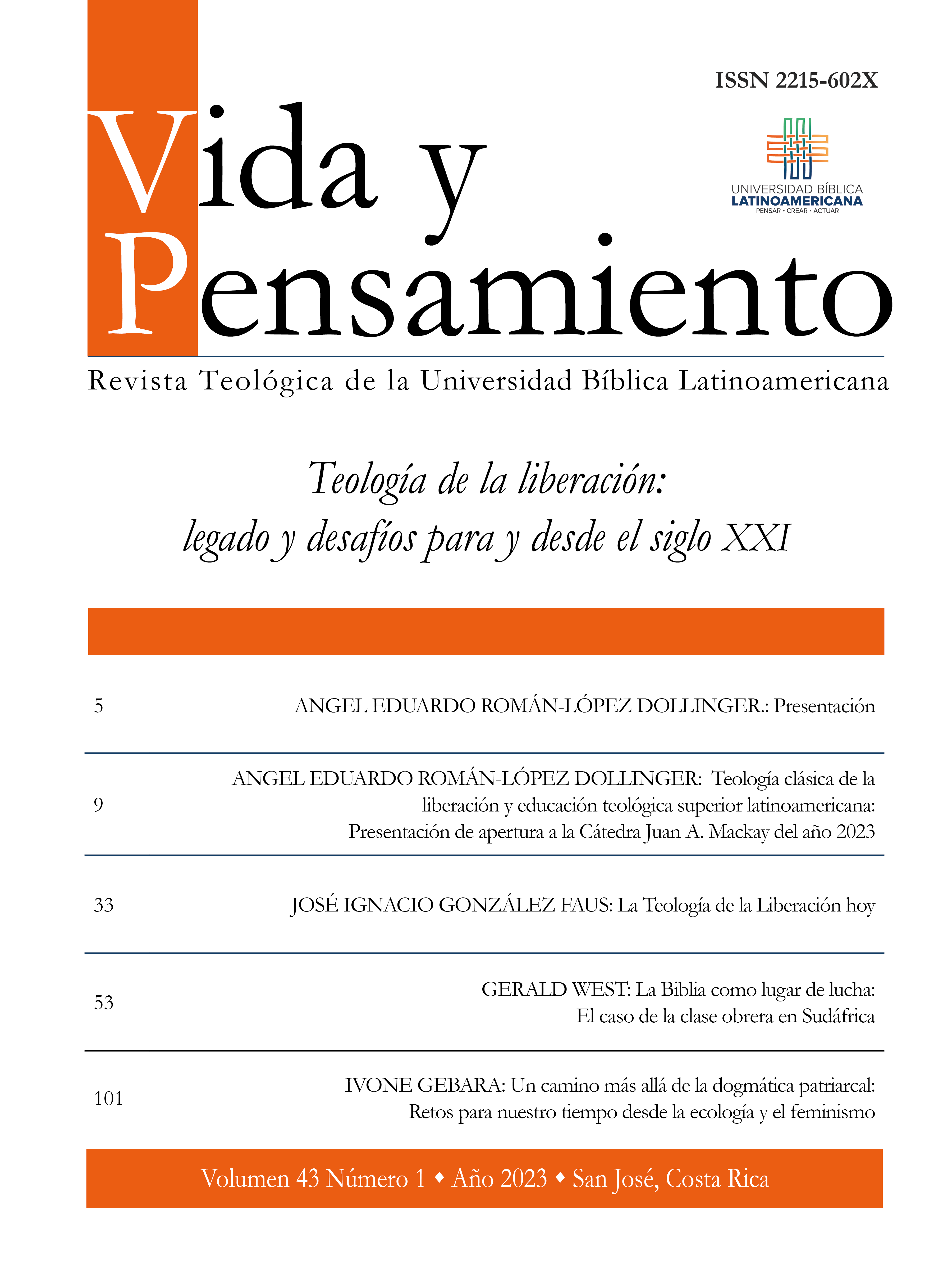La Biblia como lugar de lucha: El caso de la clase obrera en Sudáfrica
Abstract
In 1987 the South African biblical scholar Itumeleng Mosala was the first black theologian from either the United States or South Africa to argue that the Bible was intrinsically a site of class struggle. Mosala’s argument recognized the value of redaction criticism, which Mosala extended to include an ideological recognition of the class sectors engaged in ideological contestation, providing him an entry point into the ideological contestation inherent within the biblical text. Likewise, Marxist sociological categories, particularly notions around mode of production, gave Mosala resources with which to assign a particular class identity to a particular redacted “voice.” This essay reflects on Mosala’s contribution and its significance thirty years later, particularly in the South African context, and considers Mosala’s use of Marxist concepts such as “mode of production,” his understanding of the relationship between biblical text and interpretive context, and his “prophetic” warnings about working with an ideologically uncontested Bible.
Downloads
Copyright (c) 2023 Gerald West

This work is licensed under a Creative Commons Attribution-NonCommercial-ShareAlike 4.0 International License.
The authors who publish in this journal accept the following conditions:
- The authors retain their author rights y grant to the journal the right of first publication, with the work registered with the Creative Commons attribution that allows third parties to use the published material as long as they give appropriate credit to the author and the first publication in this journal.
-
The authors may make other independent contractual agreements for the non-exclusive distribution of the version of the article published in this journal (e.g. include it in an institutional repository or publish it in a book) as long as they clearly indicate that the work was first published in this journal.

